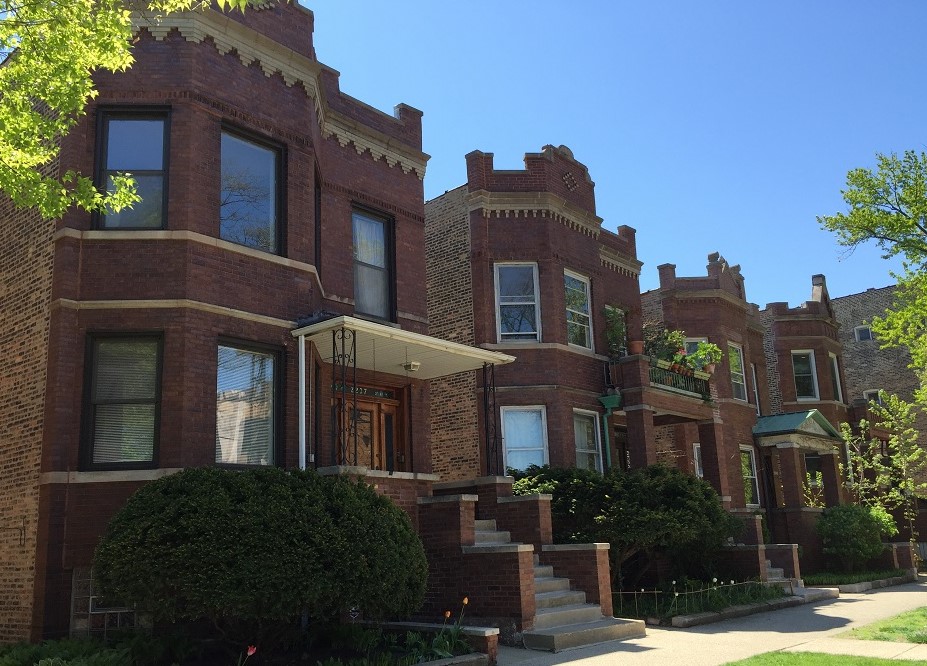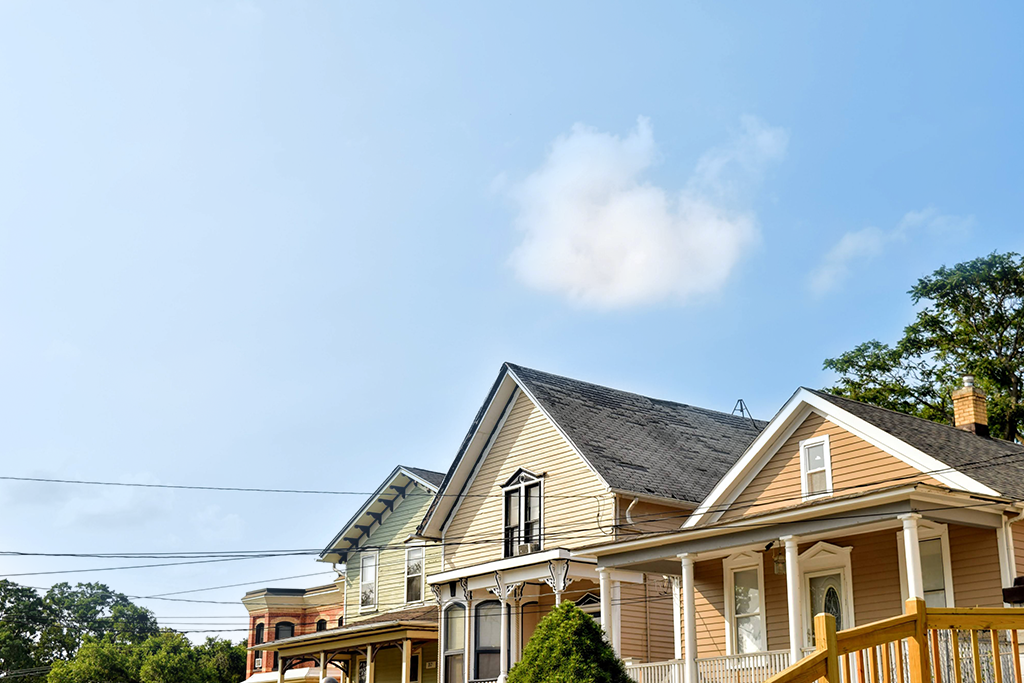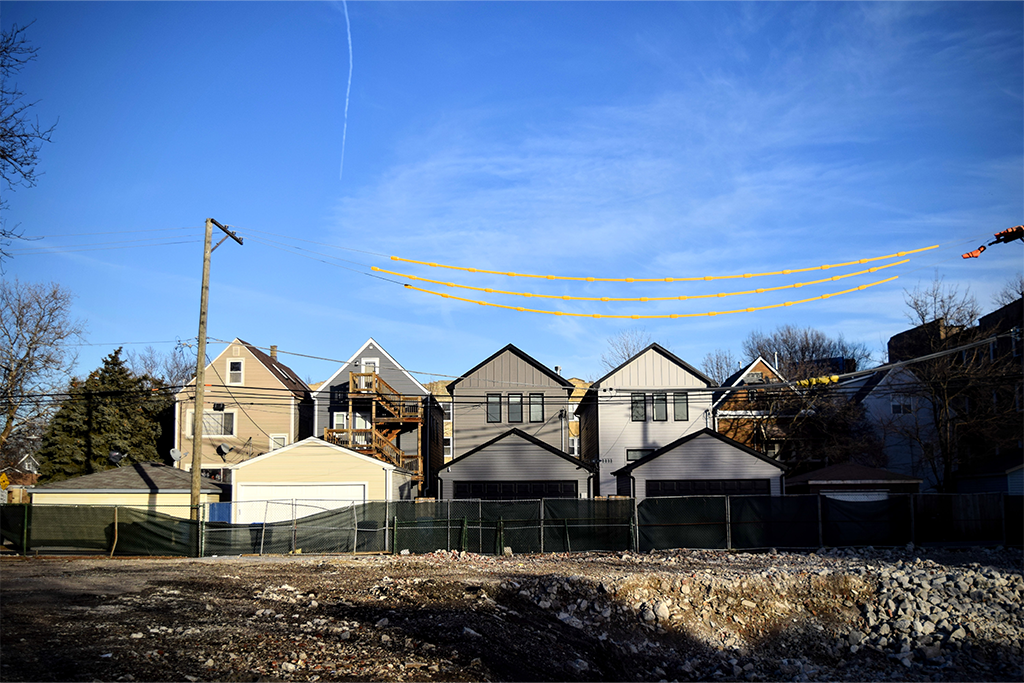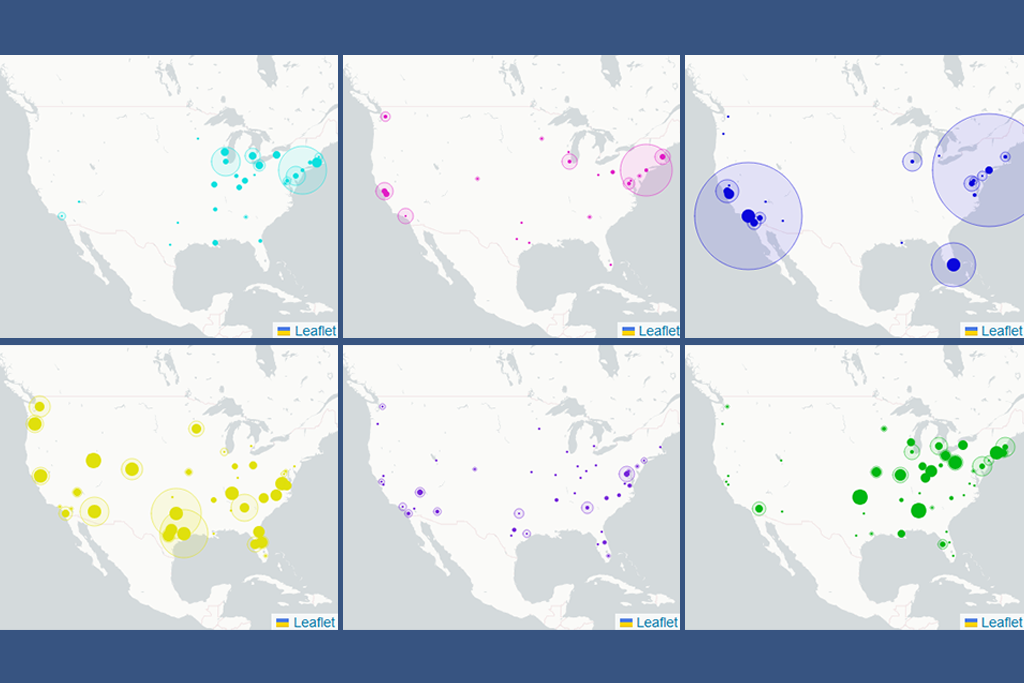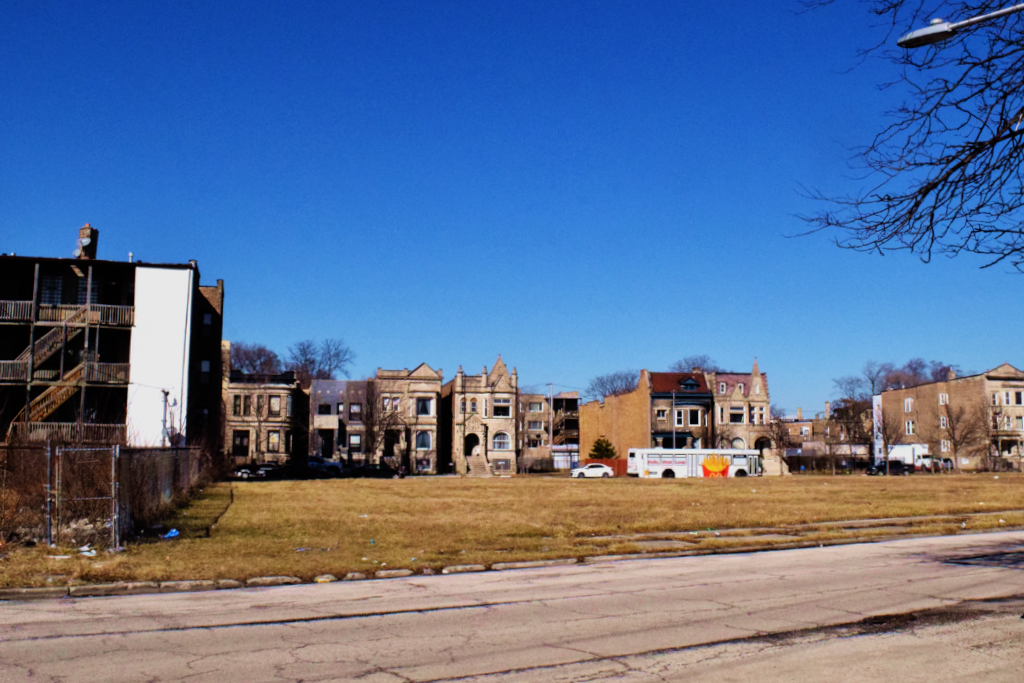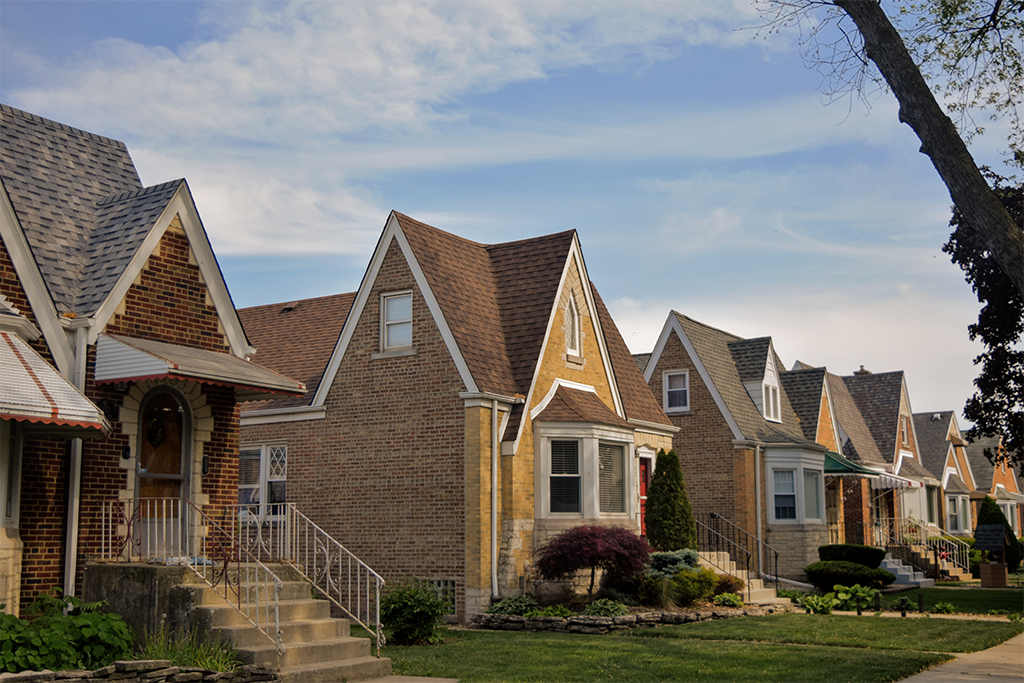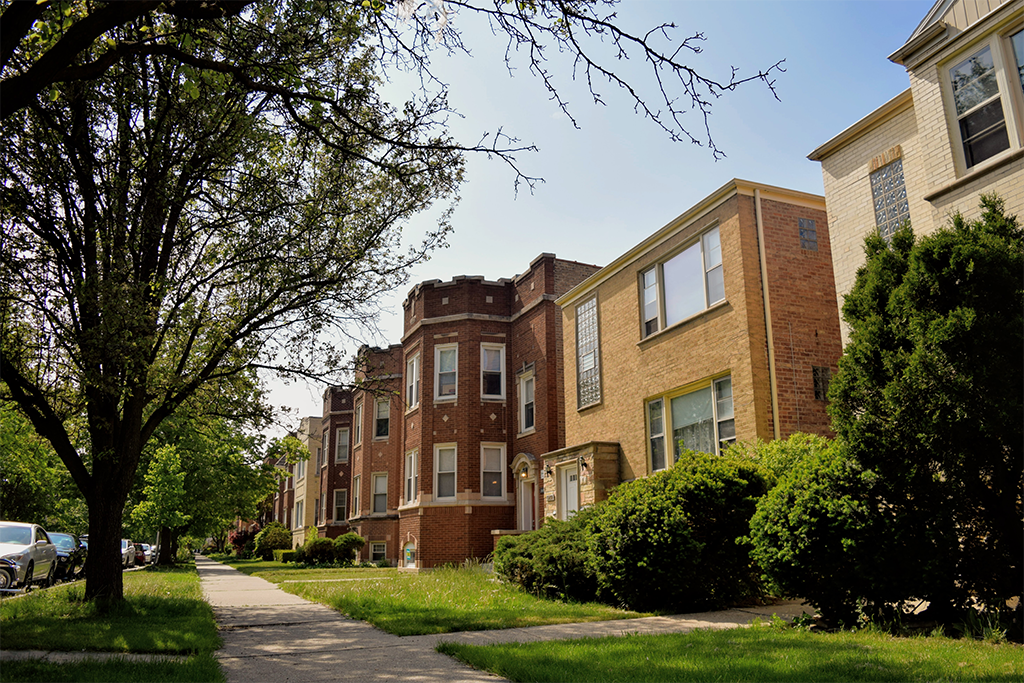The report below updates new Preservation Lab activities and resources that can equip practitioners and policymakers with the information and tools needed to preserve naturally occurring affordable housing (NOAH) across different Chicago communities. To view the Preservation Lab’s new NOAH Risk Analysis report, click here. To view a summary of preservation resources on the NOAH Clearinghouse, click here.
What is Naturally Occurring Affordable Housing (NOAH)?
Naturally occurring affordable housing (NOAH) describes housing that supports rents affordable to lower- and moderate-income households without direct public subsidy. Research has shown that the vast majority of lower-income renter households rely on the unsubsidized stock as opposed to directly subudized units. These unsubsidized, affordable units are more prevalent in older, smaller, and medium-sized rental buildings. IHS research has highlighted the importance of this stock, specifically in the City of Chicago's 2 to 4 unit buildings.
While the NOAH stock is a critical source of affordable housing, data shows that this stock is declining in Chicago and nationwide. IHS analysis shows that the share of rental units in Chicago with gross rents below $900 has rapidly declined since 2010, particularlty in high-cost neighborhoods. IHS research found that losses of the 2 to 4 unit stock is driven by different types of market pressures, occuring through conversion to more expensive housing types in high-cost markets and deterioration and demolition in lower-cost markets. Steady erosion of the NOAH stock can also occur through turnover in ownership in the multifamily housing stock as long-term owners sell to new investors looking to capitalize on strong rental demand and potentially seeking higher rents.
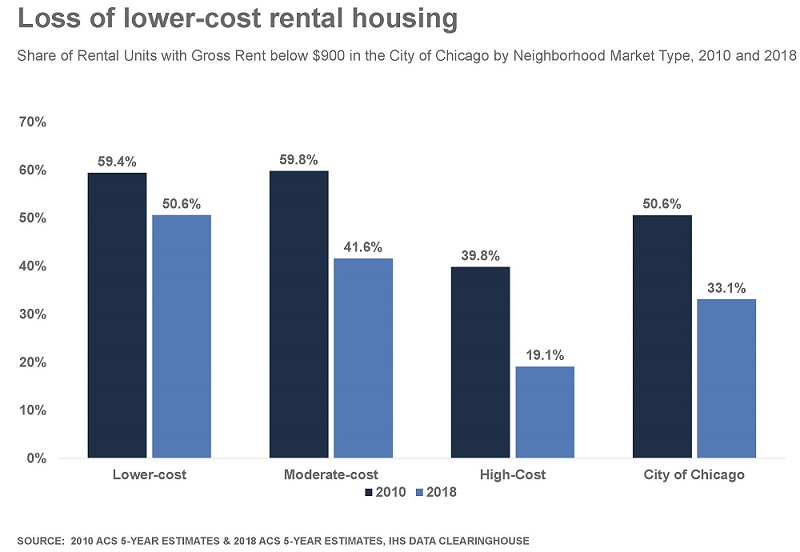
Unlike the subsidized affordable stock, these unsubsidized units do not have dedicated affordability restrictions and are vulnerable to turnover. Because of this, practitioners and policymakers have incorporated NOAH preservation as a core strategy to maintain and expand access to affordable housing.
Through the Preservation Lab, the Institute for Housing Studies (IHS) continues to aid community stakeholders with relevant data and research to support preservation strategies for the NOAH stock. Recently, the Preservation Lab has facilitated important discussions about the risk factors facing NOAH buildings, owners, and tenants and innovative preservation strategies.
About the Preservation Lab
The Preservation Lab is a joint collaborative between IHS and The Preservation Compact. The Preservation Lab was formed to convene Chicago-area experts, leaders, and advocates to discuss and develop innovative strategies focused on preserving the city’s existing affordable housing supply.
The first series of Preservation Lab meetings culminated in a white paper summarizing analysis, findings, and recommendations to stabilize vulnerable tenants and buildings during the COVID-19 pandemic. Since then, Preservation Lab stakeholders have focused on how different characteristics and risk factors such as building type, neighborhood context, and ownership characteristics can help practitioners develop targeted strategies to preserve Chicago’s diverse NOAH stock.
A New Report and Resource Clearinghouse to Support Preservation of the Diverse NOAH Stock
The Preservation Lab’s new report, NOAH Risk Analysis, documents:
- Characteristics of the NOAH stock in Chicago and their importance to the city’s lower-and moderate-income residents
- The dynamics and pressures that contribute to continued losses and turnover of the NOAH supply in different market types
- Guiding principles for practitioners and policymakers to tailor preservation strategies to local conditions and different challenges facing NOAH buildings and owners
The Preservation Lab’s new NOAH Clearinghouse gathers preservation resources from across the country and categorizes which strategies work best in different market contexts. These resources include information on financing strategies for mission-oriented and for-profit entities, existing policies and programs for existing NOAH owners and tenants, and research and information that supports the case for NOAH preservation.
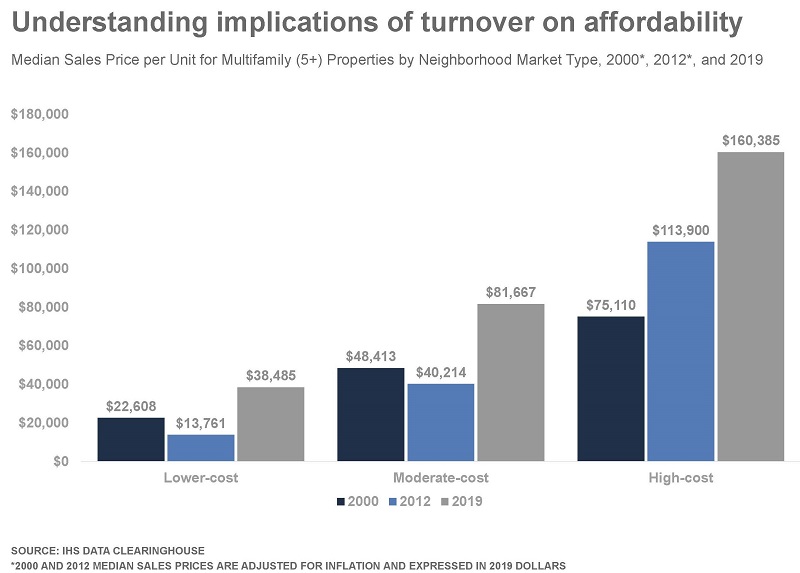
What's Ahead
In the coming months, the Preservation Lab will develop webinars and blogs that dive deeper into how key strategies in the report have aided NOAH preservation work in a diverse set of neighborhoods experiencing different market conditions and affordability pressures. To stay updated on the Preservation Lab’s activities, sign up for the Preservation Compact's newsletter. To keep up-to-date on IHS analysis, sign up for our email list, follow us on Twitter and LinkedIn.
